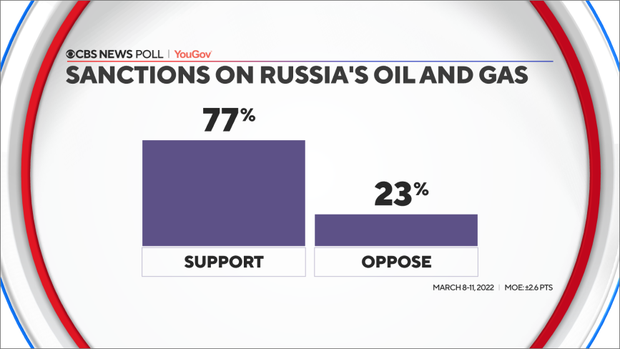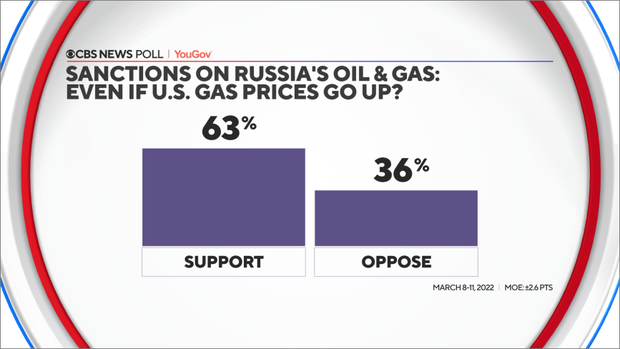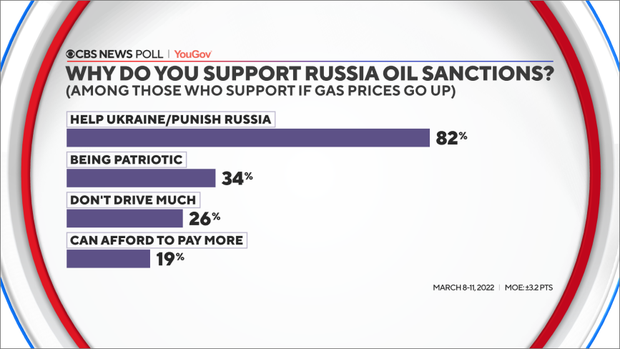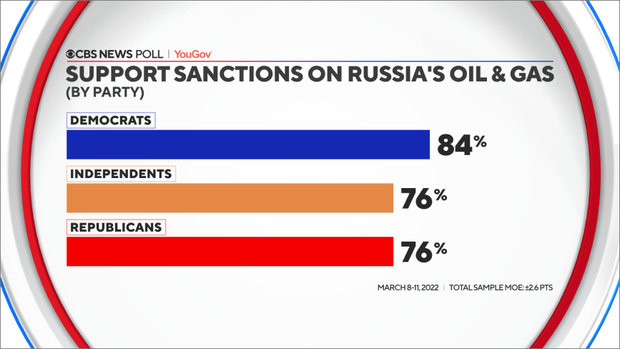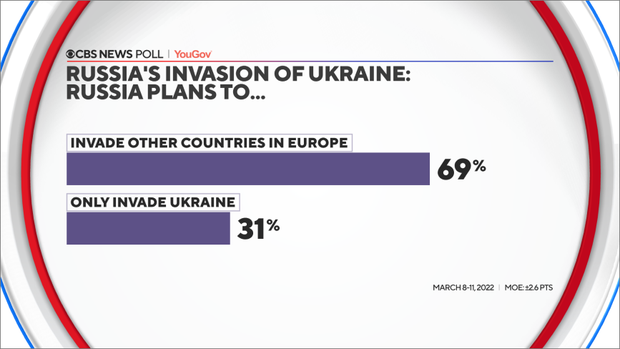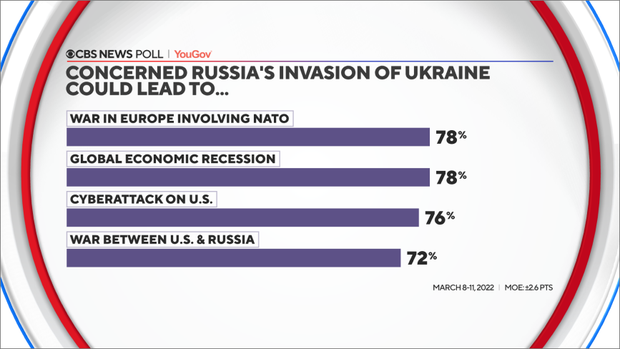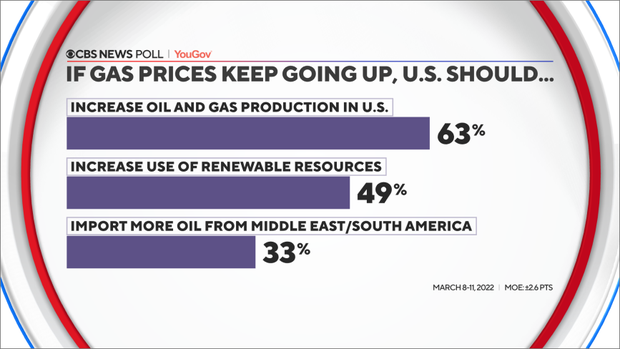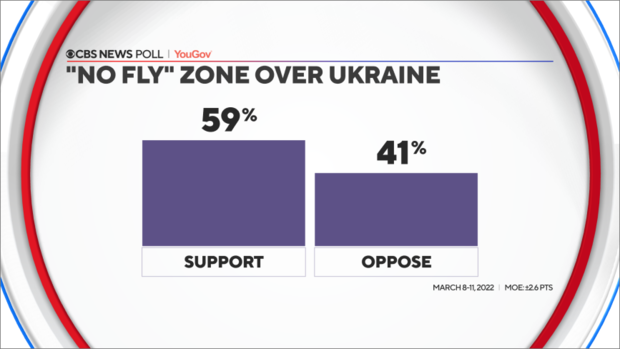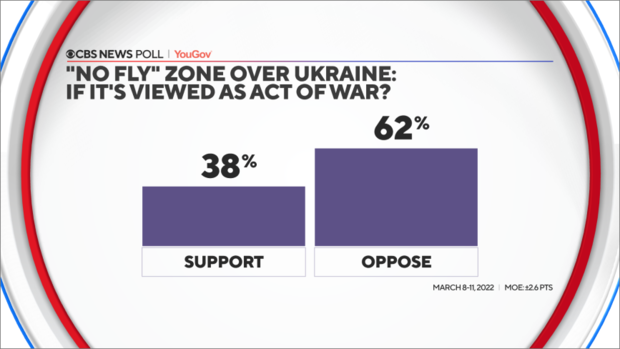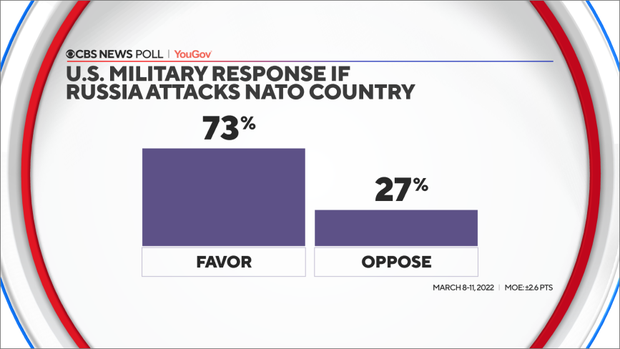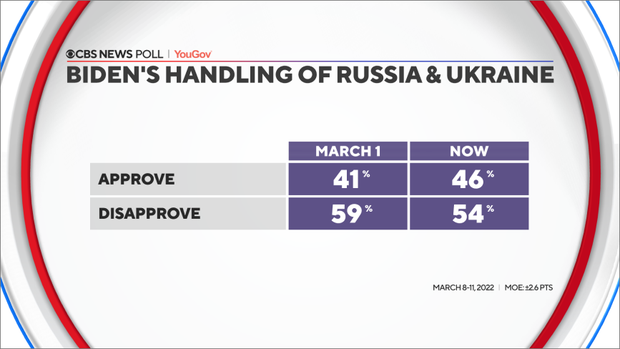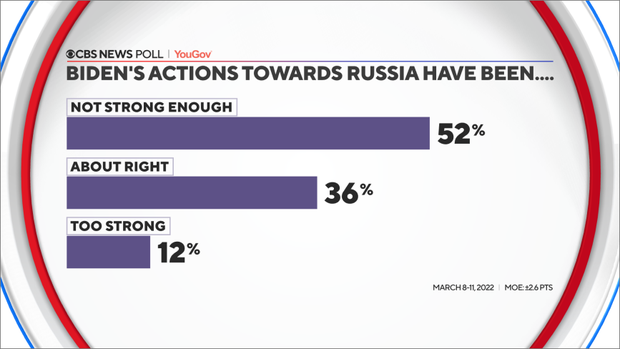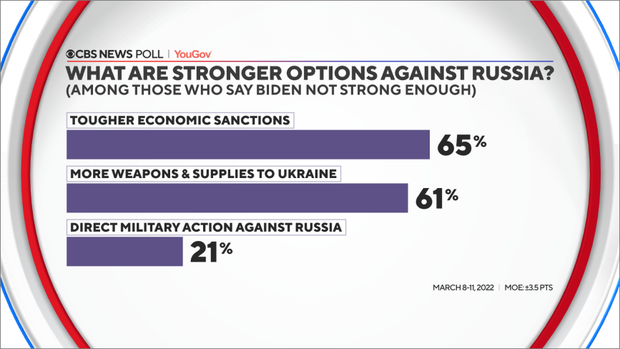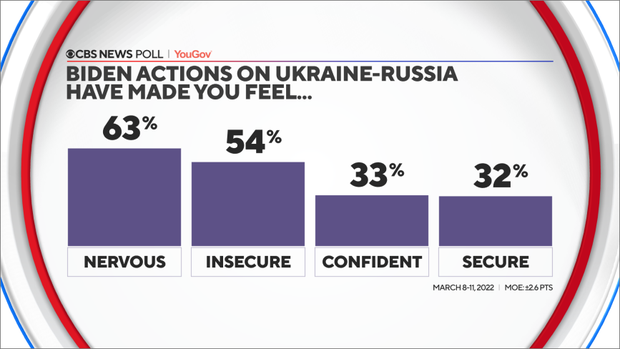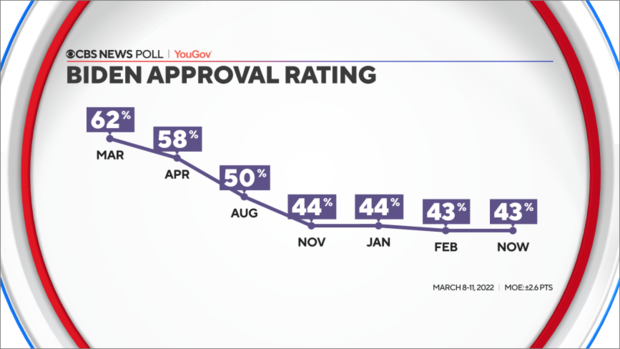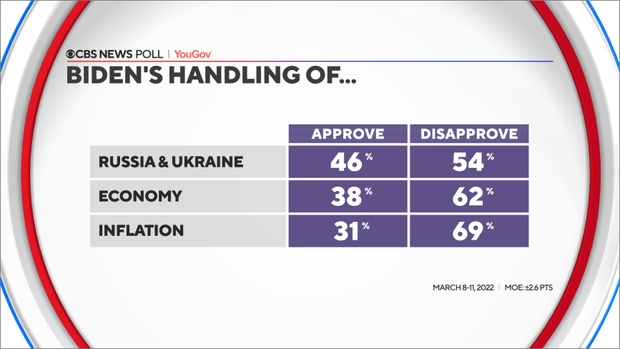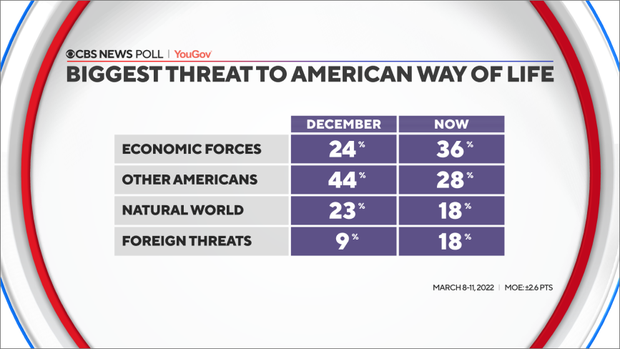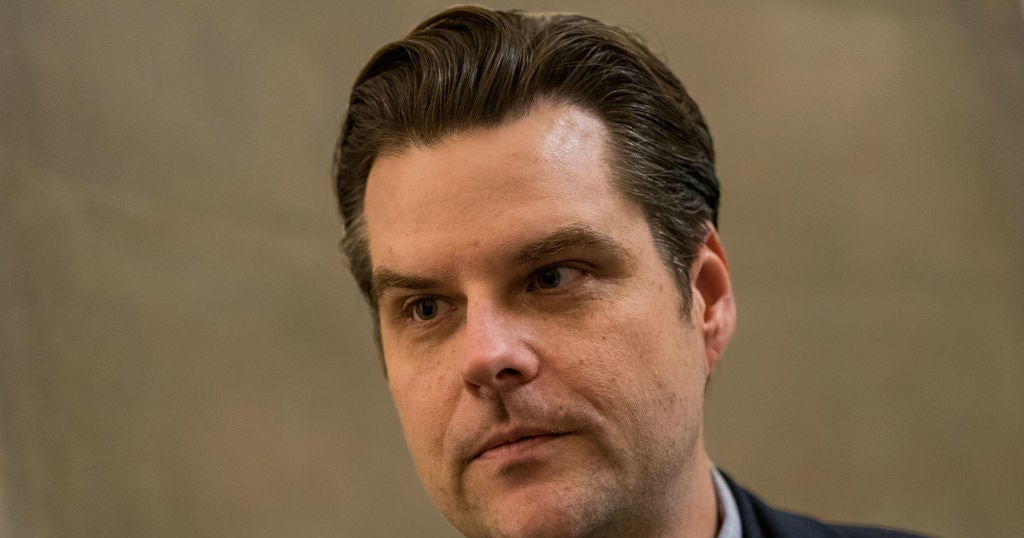CBS News poll: Strong support for Russian sanctions even if gas prices increase

The overwhelming support for sanctions on Russia’s oil and gas, and the willingness to pay more as a result, is the kind of widespread sentiment we don’t always see in public opinion these days: bipartisan, cutting across race, region, and even income. And it is driven, Americans say, by a desire to help Ukraine and punish Russia.
Some economic pain now might be seen as a hedge against bigger problems later, if it stops Russia, because Americans largely believe Russia has designs on invading other countries beyond Ukraine. People who think so are even more likely to support oil sanctions.
Punishing Russia economically still finds favor over military options. For instance, even though many initially say they would back a no-fly zone, support for it drops off once Americans consider that it could be taken as an act of war and lead to a direct U.S.-Russia conflict.
Meanwhile, President Biden’s approval rating on handling this situation is up from last week, though still mixed. That’s partly because half the country says his actions toward Russia haven’t been strong enough, and they would like to see tougher sanctions, and see the U.S. supply more weapons to Ukraine.
When we asked Americans in favor of the oil sanctions whether they would still support them if gas prices rose, most of them still would, resulting in majority support even after the cost implications.
Americans who support these sanctions see it mainly as helping Ukraine and punishing Russia. Far fewer call it patriotic or say it’s because they can afford it.
We should stress that this is something we’ll keep an eye on, and which could change, depending on how long the higher prices last, or how high they ultimately go.
Views on Russia’s plans
Given that belief that Russia doesn’t intend to stop with Ukraine, large majorities worry the Russian invasion could lead to other events like a wider war, a global recession, attacks on the U.S., and 7 in 10 are concerned it could lead to nuclear war.
What to do to offset gas prices rising?
In response to the gas price increase, a big majority want to ramp up U.S. oil production — this finds favor among most Republicans and independents and half of Democrats, too. Democrats are much more likely to say increase renewables as well. But only a third of Americans want to see the U.S. import more from the Middle East and South America.
Military options
Even though a majority of Americans initially said they would back a no-fly zone, this majority vanishes once they consider that it could lead to a U.S.-Russia conflict. Support for a no-fly zone starts off lower than the sanctions to begin with, then drops off considerably when people are asked if it meant U.S. forces might have to engage Russian aircraft, and be considered an act of war by Russia.
In the hypothetical test of what people would support if Russia attacked a NATO country, then more than seven in 10 would back a U.S. military response.
Mr. Biden’s rating on handling the situation with Russia and Ukraine is up five points since last week. That handling still only gets mixed marks in part because Republicans do not approve of it — though they do approve of the sanctions — and because half the country feels he hasn’t been strong enough toward Russia.
When those who feel Mr. Biden isn’t being strong enough are asked specifically what they’d like to see done, the top answers are give more weapons and supplies to Ukraine, and even tougher sanctions. Moreover, Americans say his handling has them feeling more nervous than confident — by nearly two to one — and more insecure than secure.
The president’s overall approval rating, though, is essentially where it’s been since November. Although Mr. Biden’s handling of the situation in Ukraine is higher than his marks for inflation and the economy at home, the ratings for the latter two remain quite low.
The percentage of Americans who consider Russia an enemy has risen since this summer. And there’s no real partisan difference on this: Democrats and Republicans are about equally apt to call Russia an enemy, as they were in June. The differences on this are more by age, with older Americans more likely to say enemy, perhaps now recalling impressions formed during the Cold War in their earlier years.
And while it wouldn’t qualify as anything resembling national unity, there is some abatement in Americans’ views that the biggest threats they face now are coming from other Americans. As concern over Russian aggression has risen, as well as economic challenges at home, fewer people now identify domestic enemies as the biggest threat to their way of life. That number is down to about three in 10, from a slim majority shortly after the January 6 assault on the U.S. Capitol and a plurality as recently as December. “Economic forces” now tops the list. While the percentage choosing foreign countries and military threats is still relatively low, it has doubled.
Jennifer De Pinto and Kabir Khanna contributed to this report.
This CBS News/YouGov survey was conducted with a nationally representative sample of 2,088 U.S. adult residents interviewed between March 8-11, 2022. The sample was weighted according to gender, age, race, and education based on the U.S. Census American Community Survey and Current Population Survey, as well as to 2020 presidential vote. The margin of error is ± 2.6 points.
World News || Latest News || U.S. News
Source link

